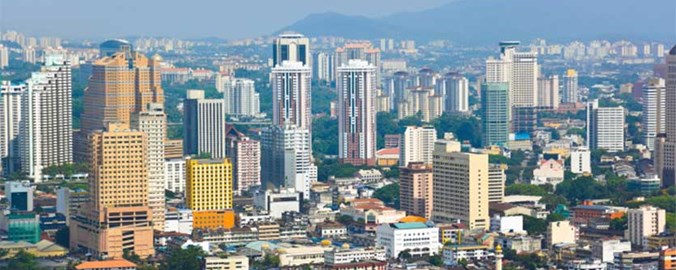
Middle East Investors Increase Exposure in Malaysian Property
2015 saw a resilient property market in Malaysia despite declining energy and commodities prices, political turmoil and a falling Ringgit, which became one of the worst performing currencies across Asia.
However, analysts believe that the next few years will see increasing opportunities for investment in Malaysian real estate, boosted by the current macro-environment in the country. Reports indicate that it is now possible to buy world-class real estate in prime locations with net yields in excess of 6%.
For overseas investors, the Ringgit has fallen 25% against the dollar compared to 12 months ago and is widely thought to be undervalued, making investments in the country particularly attractive to Middle East investors with currencies pegged to dollar performance.
The fact that Malaysia offers freehold ownership is another differentiator compared to many other Asian markets. Islamic or Sharia-compliant real estate investing is well-established and relatively straight forward. Investors can fully leverage the comprehensive Islamic financial infrastructure, another reason why Middle Eastern investors are increasingly attracted to this market.
Integrated schemes where people want to live, work, eat and shop are in demand and rare in Malaysia. Mid-Valley City, a 20-minute drive from the heart of the city, is a good example of a development that continues to be in strong demand, despite rising competition. Attracting 34 million visitors a year, it consists of two mega shopping malls, three hotels, residential apartments and several office towers where occupancy is consistently high and rental rates that outperform other buildings in the area.
Another example is KL Eco City, a 25-acre mixed-use development project underway from the SP Setia Berhad Group. It includes three luxury residential towers, which are fully sold, a mall and offices. More than 60% of the entire development is dedicated to offices, of which 90% has been sold.
In contrast to these well-designed projects, there are plenty of outdated, poorly managed older buildings in Malaysia. Around 75% of Kuala Lumpur's office stock is more than 15 years old and less than 15% is less than five years old.
The outdated office stock present a number of redevelopment opportunities and have attracted overseas investors to enter the Malaysian market.
The Canada Pension Plan Investment Board (CPPIB) made its first direct real estate investment in Malaysia in 2015 by forming a joint venture with Malaysia-based property developer Pavilion Group, investing $118.6 million. The two are investing in a mixed-use development (Pavilion Damansara Heights) in Kuala Lumpur.
Medium to long-term investors in Malaysia are currently benefiting from the undervalued currency, which provides an attractive window of opportunity for foreign buyers to enter the market.




